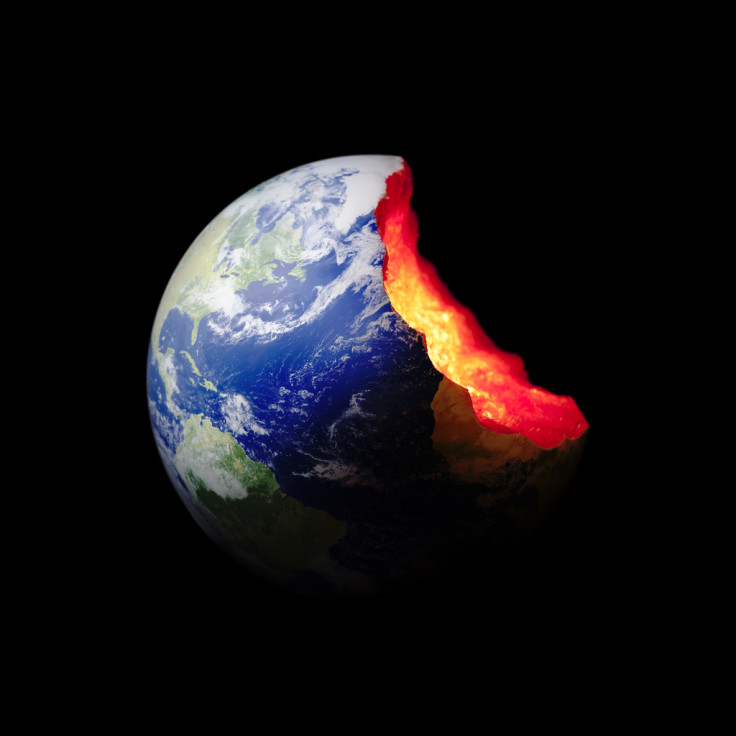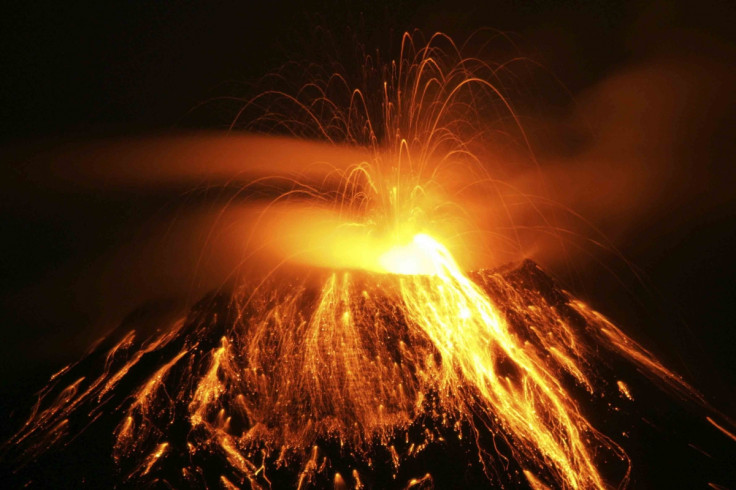An ocean of water exists deep beneath Earth's surface – and if it dries up we're all dead
Scientists find the mineral brucite can store and transport water at far greater depths than thought.

A huge amount of water exists below Earth's surface, stored within a mineral at depths of between 400 and 600km. Previously, it was thought water could not be stored in minerals at such great depths because the extreme pressure make it unstable. However, they have now found a type of brucite that can withstand such high pressures.
Scientists know water exists in Earth's interior – but just how much is there remains to be seen. Previously, researchers from the University of Alberta have said the water locked up could account for about 1.5% of the weight of the planet. This would equate to the same amount of water as all the world's oceans put together.
Understanding how much water is below the surface is extremely important to understanding the planet's geological processes, including earthquakes and volcanoes. Quantifying it will help scientists to work out how the planet formed, its current composition and its water cycle.
A team of researchers from Florida State University and the University of Edinburgh have now found evidence to show where this missing water is, potentially providing them with the tools to work out how much there is.
In a study published in the journal PNAS, the team looked at the mineral brucite, a hydrous mineral not thought to be stable enough to store water at depths of between 400 and 600km. Previous experiments have shown minerals decompose deep in Earth, releasing any water they store in the process. This water is normally then recycled back to the surface through volcanic activity.
Mainak Mookherjee and Andreas Hermann carried out quantum calculations on thousands of potential structures until they found a phase of brucite that was stable at high pressures. They found water could be stored and transported in brucite between depths of 400 and 600km.
"This opens up a Pandora's Box for us," Mookherjee said. "We didn't think water could be stored by hydrous minerals such as brucite at these conditions. But now that we know it's there, we need to figure out how much water could be effectively stored inside it."

Read more:
Earth's Interior 'Holds as Much Water as All the Oceans Combined'
Planet's 'Biggest Water Reservoir' Discovered in Earth's Mantle 400 Miles Beneath USA
The finding not only shows water can be stored at far greater depths than previously thought possible, but it means scientists can use this information to calculate the quantity of water sitting beneath Earth's mantle.
"This article is a part of the puzzle but not the entire picture," Mookherjee told IBTimes UK. "Right now we won't be able to quantify, but we are making a significant amount of progress following several years of research, but it's still an open question.
Discussing the importance of water in Earth's interior, he said: "For the activity of the planet, deep Earth water is equally important to water on the surface. My goal is to understand how much water is stored in the deep Earth. If the planet becomes dry on the inside, the planet dies because geodynamic activity within the planet ceases."
Mookherjee said the Earth's interior water will not dry up any time soon. Understanding it will, however, aid our understanding of how planets - including our own - might die.
"If you look at our neighbouring planets, like Mars, we always look for water on the surface. That's a key thing. Water is crucial for life. But it is also responsible for sustaining the large scale mantle convection within the Earth, and that's crucial to plate tectonics. These plates are in constant motion – and that is dictated by the large scale geodynamics that operate in Earth's interior."
He said if you remove the water from Earth's interior, the planet becomes too dry to function. "The geodynamics become affected – they become sluggish," he said. "That will affect the plate tectonics and once the plate tectonics die, you have no more volcanoes. "Volcanoes are important for generating the Earth's crust and eventually soil, so all kinds of things will come to a stop.
"This is what many scientists predict for planets that are already dead, but may have otherwise the appearance and size similar to Earth. So water in Earth's interior is crucial to sustain the geodynamic activity that drives everything."
© Copyright IBTimes 2024. All rights reserved.






















